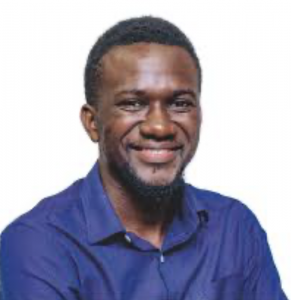A measurement tool not defined by targets
26 Aug 2025

Emmanuel Ssekitto
Growing up as a young man, I was on the fast track to becoming a soccer star, until that was abruptly interrupted by a soccer injury from which I never fully recovered. What got me out of that state of hopelessness was art. Years later, I became an art teacher and also founded a community centre that teaches young people in urban-poor communities the healing and saving power of art. We named it Faces Up, as a reference to keeping one’s chin up despite difficult circumstances.
Whenever young people came to our centre, we could see that they were enjoying the space, creating beautiful artwork, and were generally happy to be there. Before 2019, we used to define success based on how good or better a child got with painting, but we also felt we should continuously try to understand how our programme was changing the young people interacting with it. We wanted to know what impact we were having. What were the specific changes and aspirations of young people as a result of being in our programme? As a young organization, we also felt there was an opportunity to define a lot of about our work and grow with it.
We knew most people were dissatisfied with the Key Performance Metric (KPM) System, which is based on offering the same kind of content to children while grading kids on the assumption that there is a defined rate at which children learn. Though consider that in the medical world, each individual is given a dose of medicine that suits their unique needs. Even when there are thousands of patients, each patient is looked at as an individual, and not as a group. In our programme, we dealt with very unique children, yet we were looking at them in generalizations because conventional tools generalize people. What we wanted was to measure the progress of a unique and complex individual without reducing them to being a number in a group.
This is an excerpt of a blog. To read the piece in its entirety, head to the #ShiftThePower Treehouse.
By: Emmanuel Ssekitto, CEO at Faces Up, and a visual artist turned into a social worker and community organizer.


